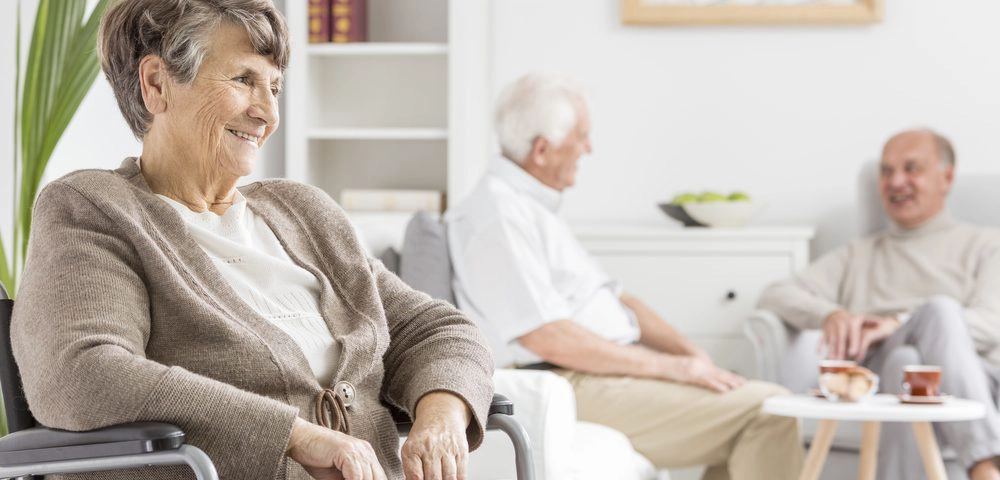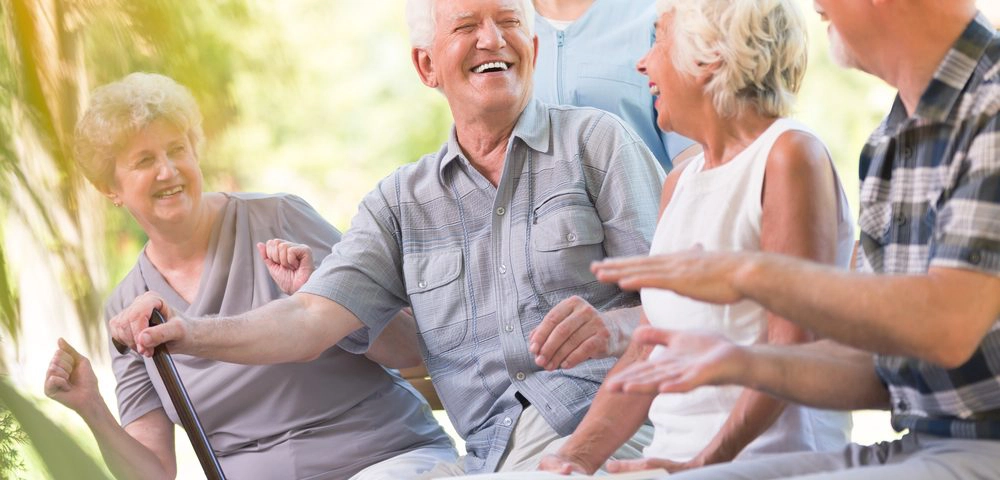by GC-admin
Share
by GC-admin
Share

Did you know that March is Brain Injury Awareness Month? This is a particular time where we can highlight the risks of traumatic brain injuries (TBIs), including those who may be at-risk for them — including some seniors.
At Cozy Retire, themes like fall prevention and physical safety — which play a role in avoiding not only brain injuries, but also many other types — are important parts of our caring services for our assisted living community. As this is a month where highlighting this condition is important, let’s go over some basic tips we utilize, and can offer to any senior or senior caregiver, on how to avoid the risks of brain injuries during the course of daily life.
Improve Living Conditions and Surroundings
Falls and related accidents are the single most common cause of brain injuries in seniors. This is largely due to slips, trips and falls that can occur when seniors are living in unsafe or substandard conditions. Making sure your loved one’s living environment is as safe as possible is a critical step in preventing brain injuries.
Some easy things you can do include:
- Remove tripping hazards like wires and cords from walking paths
- Ensure stairways and hallways are well-lit and clear of obstacles
- Install grab bars in bathrooms
- Make sure living areas and bedrooms are clutter-free
This is just a partial list — depending on your unique circumstances, there may be other things you can do to make a senior’s home or living quarters safer as well.
Regular Exercise
By participating in regular exercise, seniors will see significant improvements to themes like balance and coordination — both of which play a role in fall prevention, and can help reduce the risk of brain injuries.
There are many types of exercises seniors can participate in to stay safe. Some simple recommendations include things like yoga or Tai Chi, which are actually specifically designed for seniors and focus on improving balance and coordination. In addition, regular walking or light cardio can help improve heart health and circulation, which are both important factors in preventing falls.
Reviewing Medications
If you or your senior loved one take several prescription medications, it’s good to periodically review which you’re taking and their pertinent details with a doctor. Changes to the body over time may mean that a medication which was once safe may no longer be, and vice versa. Additionally, dangerous drug interactions can occur if someone is taking multiple medications — so it’s always best to have an expert weigh in on whether any changes should be made.
In some rare cases, improper medication interactions could lead to issues like dizziness or other balance problems, which could easily lead to a fall and subsequent brain injury.
For more on how to limit the risks of brain injuries in seniors, or to learn about any of our senior living community programs, speak to the staff at Cozy Retire today.
The post 3 Tactics for Preventing Senior Brain Injuries appeared first on Cozy Retire.
STAY IN THE LOOP
Subscribe to our free newsletter.
Leave A Comment
There are many questions that people tend to have when it comes to a potential move of a senior into an assisted living community, and some of these naturally tend to revolve around costs and how they will be covered. One particularly common such question: Will Medicare pay for assisted living? At Cozy Retire, we’re
There are several common questions that often arise regarding financial areas when you or someone in your family is considering a move to an assisted living facility, and one of the most frequent is this: Is assisted living tax deductible? The answer is often yes, though there are some important nuances to be aware of.
There are a few decisions that can be naturally difficult to make in our lives as we age, and one of these for those who are approaching or have already entered senior age range is a potential move to a retirement community. While this is a step that some people resist for understandable reasons, there
While there’s often a natural and understandable focus on many areas of physical health among seniors and older adults, the realm of mental health is also one that should never be forgotten about in these age ranges. Mental health is just as important as physical health, and the two often go together – and there



